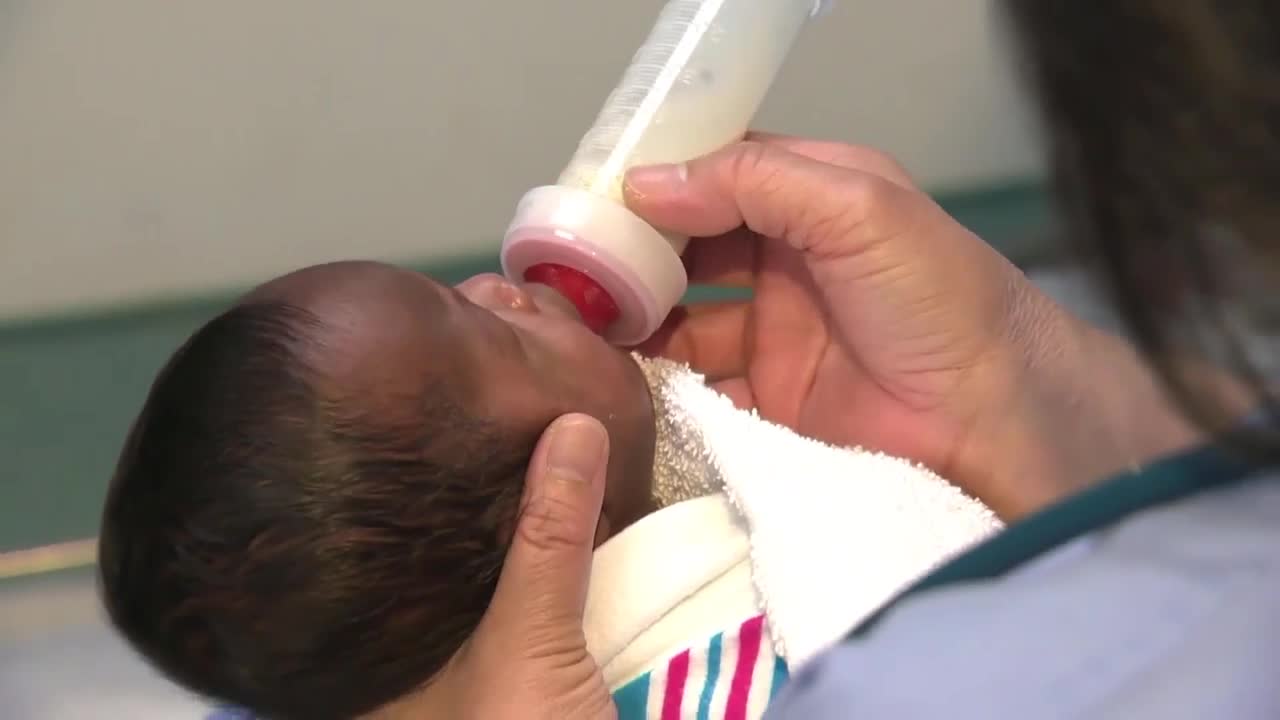HAMPTON, Va. — According to the Centers for Disease Control and Prevention, Black women are three times more likely to die from pregnancy-related causes than white women. A group of women across Hampton Roads are committed to changing this narrative.
Michaela Twitty, a mother of two from Suffolk, recently gave birth to her youngest child, Genesis. She expressed the importance of being "listened to, respected, valued, and cared for."
"This time around, I was like, I want to be more knowledgeable on what my options were and how I want my birth to be — really taking full control and ownership of my pregnancy," Twitty said.
During her pregnancy, she connected with LaToya Barnes, a doula with a Virginia-based organization called Birth In Color.
They first met for coffee to get to know one another. During their conversation, Barnes outlined the services offered, saying, "We just talked about all the things... Comfort measures, we talk[ed] about breastfeeding, bottle feeding, we talk[ed] about if you're getting a C-section or interventions that — A to Z. And then of course, we do labor and delivery support where we show up with you, labor with you, have the baby with you and that can look like whatever Mom needs it to look like."
Twitty noted that this additional care was something she did not have during her first pregnancy. She admitted she didn't even know doula support was an option.
Kenda Sutton-El, founder of Birth In Color, emphasized that a lack of knowledge contributes to the high maternal mortality rates for Black women.
"I initially started Birth in Color simply because no one was raising awareness to the Black maternal mortality rate. It's a whole system issue that needs to change," Sutton-El said. "82% of the deaths are preventable."
The CDC released new data in February indicating that while pregnancy-related deaths for white, Hispanic, and Asian mothers have decreased, the mortality rate for Black women continues to rise.
This disparity has driven Sutton-El to advocate for maternal health, particularly in Virginia, where she supported the passage of a "momnibus" package consisting of bills focused on maternal health.
“If you feel like your provider is not listening to you, or you don't feel comfortable at that point, that's when you know you need to change providers,” she said.
Sutton-El explained that doula care is linked to positive delivery outcomes, which is why Birth In Color has partnered with Sentara CarePlex Hospital in Hampton.
Angela Randolph from Sentara said, "I think opening your eyes and really putting a focus on what happens when a woman gives birth is extremely important."
Randolph highlighted that hospitals are required to meet federal standards, including monitoring unplanned C-sections versus vaginal deliveries.
"The national average is somewhere between 23 and 24%, but CarePlex's rating for last time is 12.5%, so we are very, very proud of that," Randolph says.
The success stories, like Twitty's, reflect the importance of support during childbirth.
"He came out fine, healthy. I was healthy, everyone just supported each other," Twitty said.
Additionally, Twitty's doula, LaToya, has become her son's godmother. "We are pretty much like sisters," Twitty said.
As Black Maternal Health Week ends, the women involved emphasize the significance of feeling heard and supported throughout the childbirth experience.
“We want to raise awareness to you, but we don't want you to go into childbirth being afraid, either,” Sutton-El said.








